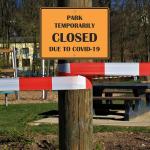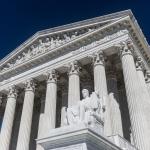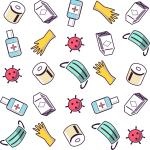Let’s start with an assumption that the number of cases of COVID in China is difficult to determine, primarily because China doesn’t care to share. So most of the numbers I have read and may mention come to us indirectly.
Lockdowns
One of the reasons that foods are processed is to increase their “shelf-life,” which is another way of saying allowing these foods to travel along our supply chains and be buffered in warehouses so that supply always matches demand.
"In theory, there is no difference between theory and practice - in practice, there is."
- Yogi Berra
In March 2020, the iconoclastic French microbiologist Didier Raoult announced that the anti-malaria drug hydroxychloroquine had cured all 36 COVID-19 patients enrolled in his clinical trial.
To mask or not, employer mandates, worker pushback, and the changing landscape of dining in and out. The tradeoff is between risk and your sense of safety.
The authority of public health officials, particularly concerning communicable disease, has long been predicated upon a decision made by the Supreme Court in 1905, Jacobson v. Massachusetts.
There is a wide variety of opinions about the value of the use of lockdowns as a method of controlling the spread of COVID, ranging from "a complete waste of time that did more harm than good" to "they weren't done strictly enough."
A few months earlier, cases similar to New York’s were presented to the Supreme Court, one regarding a Nevada law and one, a
Before we jump in, a bit of demographic housekeeping.
Lockdowns are nothing more than widespread, complete social distancing. The science here is clear that eliminating direct contacts significantly reduces disease transmission.












